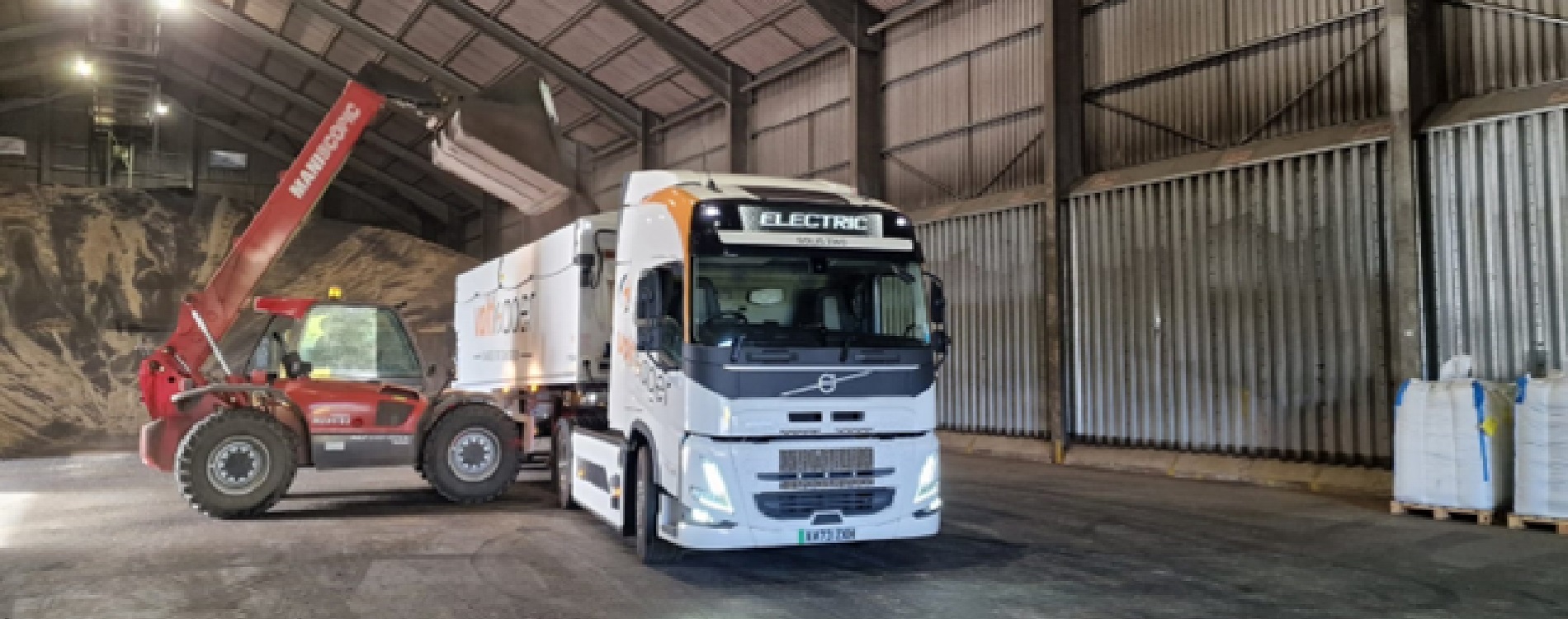Openfield begins journey to net-zero by exploring electrified vehicles
Openfield Group, the British farmer-owned co-operative, has teamed up with Voltloader to trial fully electric trucks in an ambitious bid to reduce Carbon Emissions.
This innovative partnership will see grain loads moved from Openfield member farm gates to their consumer customers using Voltloader’s all-electric fleet, which is currently focused on the bulk haulage industry.
Teaming up with Voltloader helps Openfield begin their ambitious plan to explore opportunities for alternative fuels for their transport operation. As they use Voltloader for some local deliveries they will gain useful insights into what they will need to do to meet their overall net-zero commitment, whilst at the same time reducing their haulage carbon footprint today.
Openfield recently launched a new Environmental, Social, and Governance plan, which includes a commitment to become net-zero by 2040 and becoming the leading partner of net zero solutions for seed, fertiliser, grain and storage. Their recent own fleet expansion means that in addition to Openfield’s increased service offer, by moving over half of their own grain, they now have a direct influence over their road haulage environment impact.
“Green House Gas emissions from the transportation of grain and oilseeds are the single largest contributor to Openfield’s tonnes of CO2 equivalent footprint”, says Richard Jenner, Member Service Director. “Whilst we seek to become net-zero by 2040, we are also committed to supporting all our consumer customers and farmer members on their own journey to net zero. Using vehicles powered by diesel alternative fuel options, such as electric, HVO and biomethane, will reduce our transport emissions by 70% to 85%”.
Recent loads have included deliveries into consumers at Bawsey, Long Buckby and Stoke Ferry from farms in the region of Voltloader’s base in Whittlesey. Currently the payloads are in excess of 24 tonne (up to 29 tonne for diesel HGVs) and the range for trucks on one charge is around 150 miles. However, Voltloader’s ultra-rapid 200 kW charging capability at its Whittlesey site allows the trucks to be topped up in only 90 minutes allowing a greater daily range for vehicles. This will further grow with their vision to expand along the A1 in Lincolnshire and Cambridge and into East Anglia.




